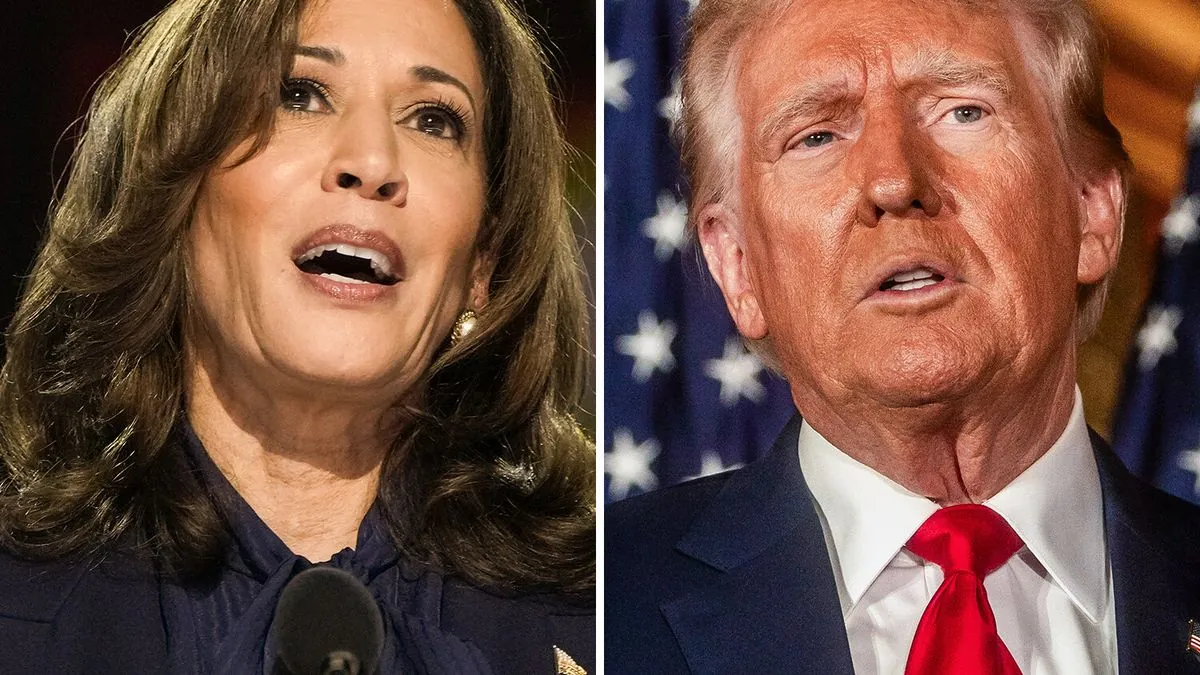A recent Reuters/Ipsos poll suggests that Vice President Kamala Harris is making significant strides in her presidential campaign, narrowing the gap with former President Donald Trump on crucial issues such as the economy and crime. This development comes as the United States approaches its next presidential election, scheduled for November 5, 2024.
The poll, conducted from August 23-25, 2024, reveals a shift in voter preferences compared to a similar survey from late July. On economic matters, Trump's lead has diminished considerably. While he maintains a slight edge with 43% of registered voters preferring his approach to the economy and employment, Harris follows closely at 40%. This 3-percentage point difference falls within the poll's margin of error, effectively placing the candidates on equal footing.
Regarding crime and corruption, the two candidates are now tied at 40% support each, marking a significant improvement for Harris, who previously trailed Trump by 5 points in July. This shift indicates growing confidence in Harris's ability to address these critical issues.
The economy remains the top concern for 26% of registered voters, followed by political extremism and threats to democracy at 22%, and immigration at 13%. Harris leads Trump on the issue of extremism (42% to 36%), while Trump maintains an advantage on immigration policy (45% to 37%).
It's worth noting that the U.S. economy has faced challenges in recent years, with inflation rates reaching levels not seen in decades during the early 2020s. Harris has pledged to address this issue by tackling practices such as "price gouging" by grocers, a term referring to unfair price increases, especially during times of crisis.
The poll also sheds light on the candidates' overall favorability. Both face high unfavorability ratings, with 59% of voters expressing an unfavorable view of Trump and 52% for Harris. However, Harris edges out Trump in favorable ratings, with 47% compared to his 39%.
"It remains to be seen how the race will be affected by independent candidate Robert F. Kennedy Jr's decision on Friday to suspend his campaign. Kennedy, who had attracted the support of about 8% of voters in a July poll, subsequently endorsed Trump."
This development adds an interesting dynamic to the race, as independent candidates rarely win significant support in U.S. presidential elections. The two-party system, dominated by Democrats and Republicans, has long been a feature of American politics.
As the campaign progresses, both candidates will need to address the concerns of voters across a wide range of issues. With voter turnout in U.S. presidential elections typically ranging from 50% to 60% of eligible voters, engaging and mobilizing the electorate will be crucial for success in November.
The upcoming election will determine who leads the country for the next four years, with the winner being decided by the Electoral College rather than the popular vote. As public opinion polls continue to shape perceptions of the race, both Harris and Trump will undoubtedly intensify their efforts to win over undecided voters in the months ahead.
